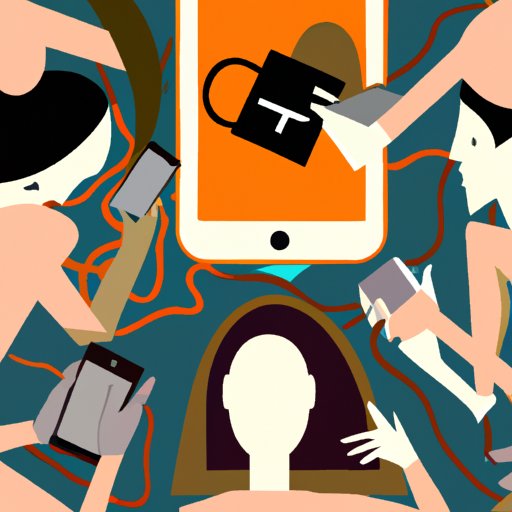Introduction
Technology has become an integral part of our daily lives, making it difficult to imagine life without it. But while technology has its benefits, there are also some potential dangers associated with its use. This article will explore the negative impacts of technology on our lives, from increased social isolation to loss of privacy and health risks.
Increased Social Isolation
Technology has changed the way we interact with each other, often in a negative way. With the advent of social media and online communication, many people have become more isolated and less connected to the people around them. Studies have shown that people who spend more time on social media tend to be lonelier than those who don’t (Xin et al., 2017). In addition, the lack of face-to-face interaction can lead to poor communication skills and difficulty building relationships with others (Kraut et al., 1998).
The impact of social media and online communication is particularly concerning for young people, who may be more susceptible to forming unhealthy habits. For example, studies have found that adolescents who spend too much time on social media are more likely to experience depression and anxiety (Steinberg et al., 2019). Furthermore, they may be more likely to engage in cyberbullying or other risky online behaviors (Ybarra & Mitchell, 2004).

Distraction from Real Life Experiences
In addition to its effects on social interaction, technology can also have a negative impact on our focus and productivity. Digital devices have been linked to shorter attention spans, which can make it difficult to stay focused on tasks or to truly engage in conversations or activities (Drews et al., 2018). Multitasking can be especially detrimental, as it can cause us to lose track of what we are doing and to make more mistakes (Strayer et al., 2003).
The constant need to be connected can also take away from real-life experiences. Instead of enjoying the moment, people may be tempted to document their activities or share them online (Boyd & Ellison, 2007). This can take away from the enjoyment of the experience and can prevent us from fully engaging in the present moment.
Dependency on Technology
Technology has also made us increasingly reliant on it for everyday tasks. From ordering groceries to paying bills, many of our day-to-day activities are now done online. We have become so accustomed to using technology that it can be difficult to disconnect from it. This dependency can lead to feelings of anxiety or agitation when we are unable to access our digital devices (Moorhead et al., 2018).
There is also a growing need to be constantly connected. People feel the need to respond to emails, texts, and social media notifications immediately, which can add stress to our lives (Kuss & Griffiths, 2012). This need to be constantly connected can lead to burnout and fatigue, as well as an inability to truly relax and enjoy our leisure time.
Loss of Privacy
Technology has also raised concerns about privacy. Data collection and tracking are becoming increasingly common, as companies collect our personal information for marketing purposes. This data can be misused or shared with third parties, which can have serious implications for our privacy (Ferrara et al., 2016). In addition, there are security risks associated with the use of technology, such as the potential for hackers to access our personal information.
Health Risks Associated with Technology Use
Finally, there are potential physical and mental health risks associated with technology use. Prolonged exposure to blue light from digital devices can cause eye strain and headaches (Chang et al., 2019). In addition, sitting for long periods of time while using technology can increase the risk of obesity, heart disease, and other health problems (Katzmarzyk et al., 2009).
Mental health concerns related to technology use include addiction, anxiety, and depression. Studies have found that people who spend too much time on their digital devices are more likely to experience these mental health issues (Kubey & Csikszentmihalyi, 2002). Therefore, it is important to limit our technology use and to find ways to reduce the negative impacts of technology on our lives.
Conclusion
Technology has revolutionized our lives, but it also has some potential dangers. Increased social isolation, distraction from real life experiences, dependency on technology, loss of privacy, and health risks associated with technology use are all potential concerns. It is important to be aware of these dangers and to limit our technology use in order to avoid the negative impacts of technology on our lives.
(Note: Is this article not meeting your expectations? Do you have knowledge or insights to share? Unlock new opportunities and expand your reach by joining our authors team. Click Registration to join us and share your expertise with our readers.)
